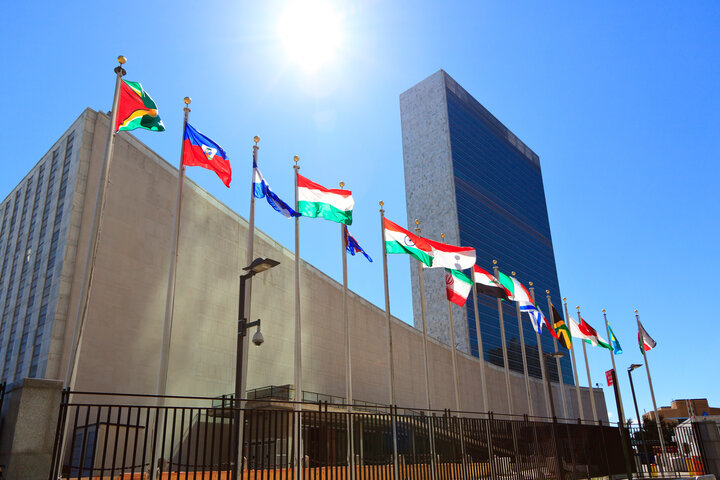Iranian diplomats restrictions: US fear of Iran's diplomacy

TEHRAN, Sep. 24 (MNA) – The imposition of restrictions on Iranian diplomats is an unintended admission by Washington of Tehran’s power and influence in the realm of international diplomacy.
The sweeping restrictions imposed by the US government on Iranian diplomats traveling to New York for the annual session of the United Nations General Assembly once again expose the selective and instrumental nature of Washington’s approach toward “diplomacy” and “dialogue.” These restrictions, which prevent diplomats from moving beyond a few streets around the UN headquarters and even complicate their ability to meet daily needs, are not merely a simple administrative or security measure. Rather, they stem from America’s fear of the logic of dialogue and reasoning presented by the Islamic Republic of Iran.
The UN General Assembly is one of the broadest international opportunities for multilateral interaction and consultations among countries. All nations view it as a suitable platform to deliver their voice to global public opinion and diplomacy. In recent years, the Islamic Republic of Iran has managed to use this arena to actively present its independent and reasoned positions in opposition to America’s unilateral policies and those of its allies, convincing many countries of the legitimacy and logic of its views. This, quite clearly, is the main cause of Washington’s anxiety and its resort to a policy of restricting the voice and movement of Iranian diplomats.
The United States knows well that if Iranian diplomats, like their counterparts from other nations, are free to engage in wide-ranging consultations with representatives of states, institutions, and media, a wave of critical discourse against its hegemonic policies will emerge. From this perspective, the imposed restrictions are an effort to silence—or at least diminish—the voice of Iran in the international arena. Such an approach is not only a hostile act against the Islamic Republic of Iran but also reveals the lack of self-confidence and fear among US rulers in facing the logic of Iranian diplomacy.
From another angle, such treatment stands in clear contradiction to the spirit and philosophy of the United Nations itself. The UN was founded on the basis of interaction, dialogue, and mutual respect among states. When the host country—the United States—blocks the free presence and participation of a member state’s delegation in side activities and diplomatic contacts, it effectively undermines the neutrality and transparency expected of the UN. These restrictions can be regarded as a blatant misuse of host status and a violation of America’s international responsibilities—responsibilities Washington is obligated to observe under UN agreements.
The contradiction between America’s slogans and its actions in this matter is also noteworthy. Washington officials constantly stress the need to “resolve global issues through dialogue,” yet in practice, they only accept dialogue when it reflects their own positions. If a different or critical voice is raised against their policies, they resort to tools such as pressure, restrictions, and sanctions to silence it. This behavior clearly demonstrates that America’s slogans in defense of freedom of expression and global dialogue are nothing more than an empty shell that collapses under the slightest pressure.
Moreover, America’s latest move could carry significant reputational costs at the international level. Washington, which portrays itself as a law-abiding power committed to international law, shows through such restrictions that it is not even serious about fulfilling its legal obligations and responsibilities as host of the UN headquarters. This not only damages America’s claimed credibility as a defender of international law but also increases other nations’ distrust toward its policies—a harm that falls squarely on the United States itself.
The issue is that whenever the United States, as a global power, is confronted with a different discourse and logic, instead of providing a rational and diplomatic response, it chooses the path of pressure and restriction. The restrictions against Iranian diplomats fall into this same category: an action that reflects weakness and fear of Iran’s influence in international diplomacy far more than it reflects strength.
Ultimately, it must be said that the policy of restricting Iran’s voice at the UN General Assembly, while it may complicate certain diplomatic interactions, in practice reveals America’s true face to global public opinion more than it corners Iran. The world now realizes more than ever that the United States is not only unwilling to hear a different voice but also fails to uphold the basic principles of hosting an international institution. This, in turn, can strengthen Iran’s position in diplomacy and demonstrate that the logic of dialogue—despite Washington’s attempts at restriction—remains a powerful tool in the hands of the Islamic Republic of Iran.





